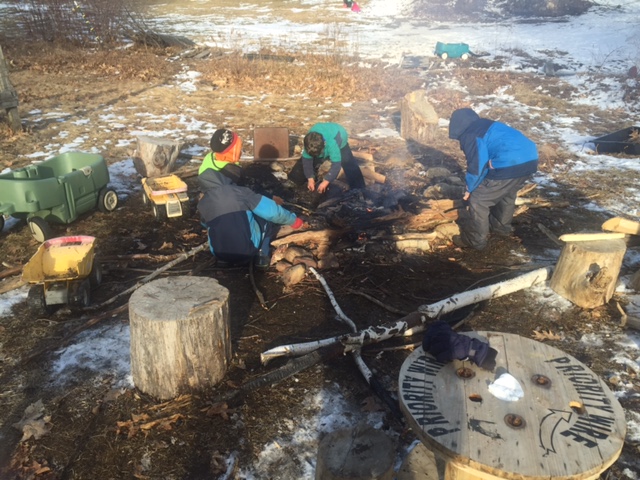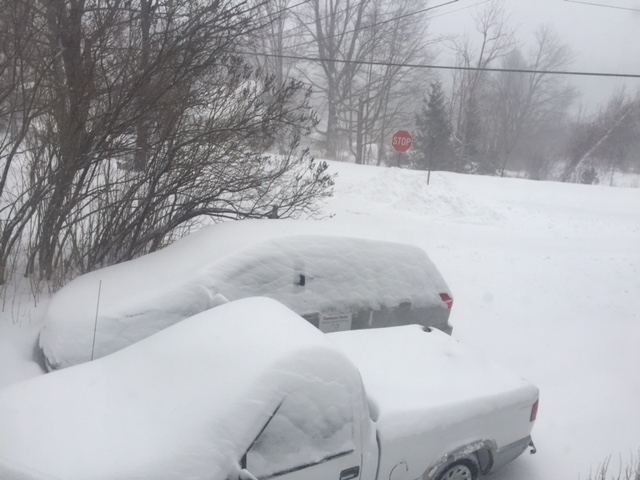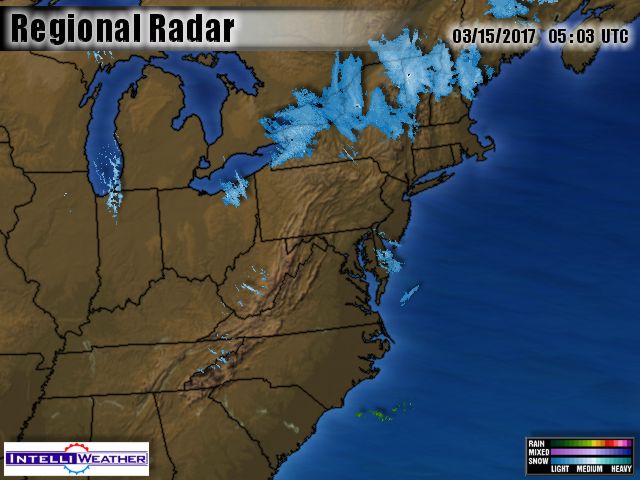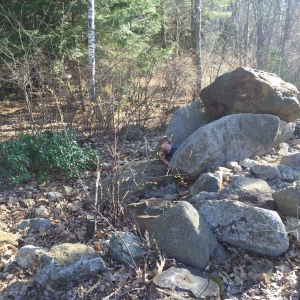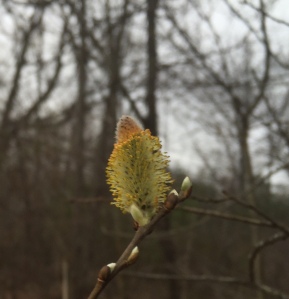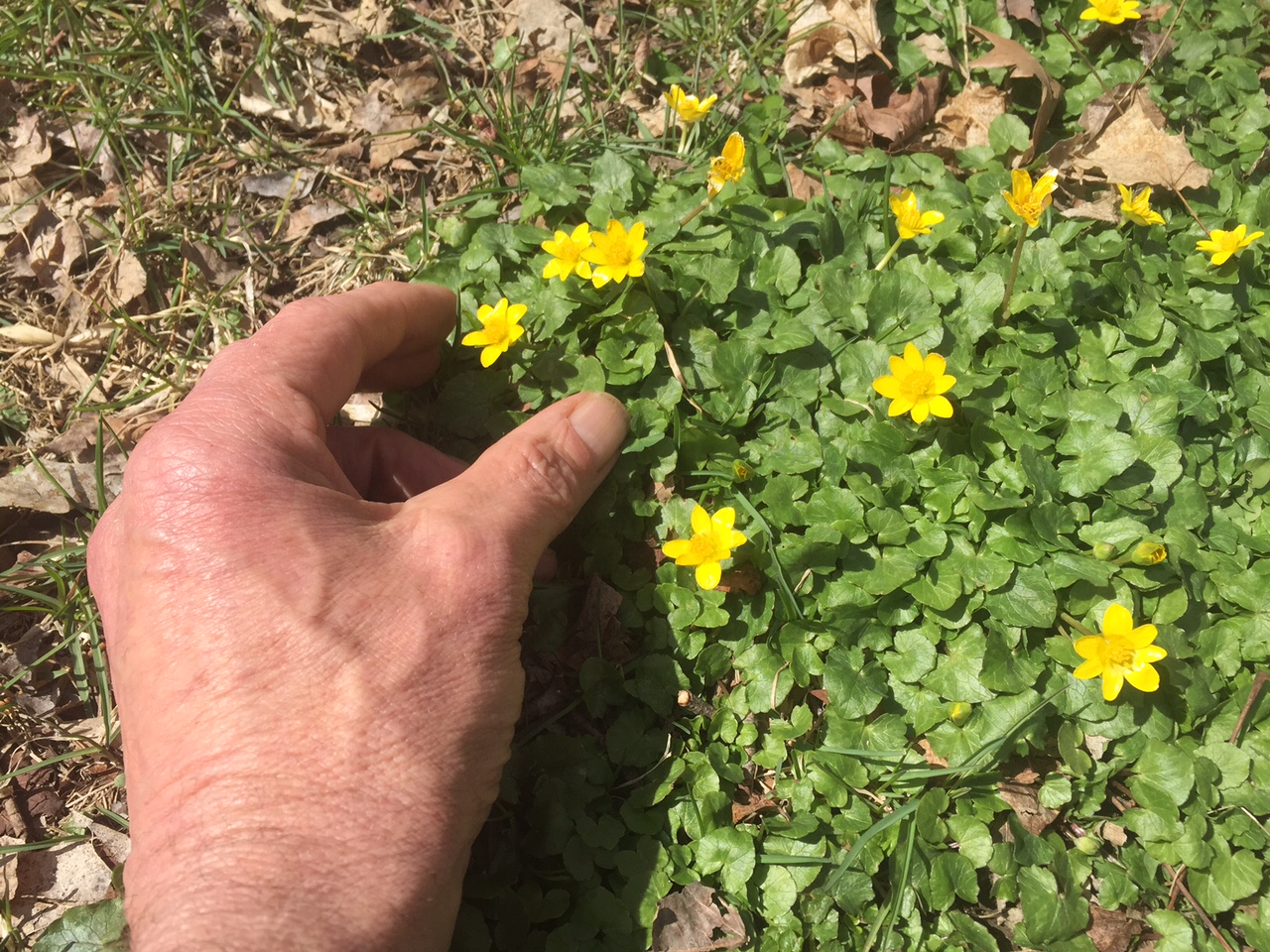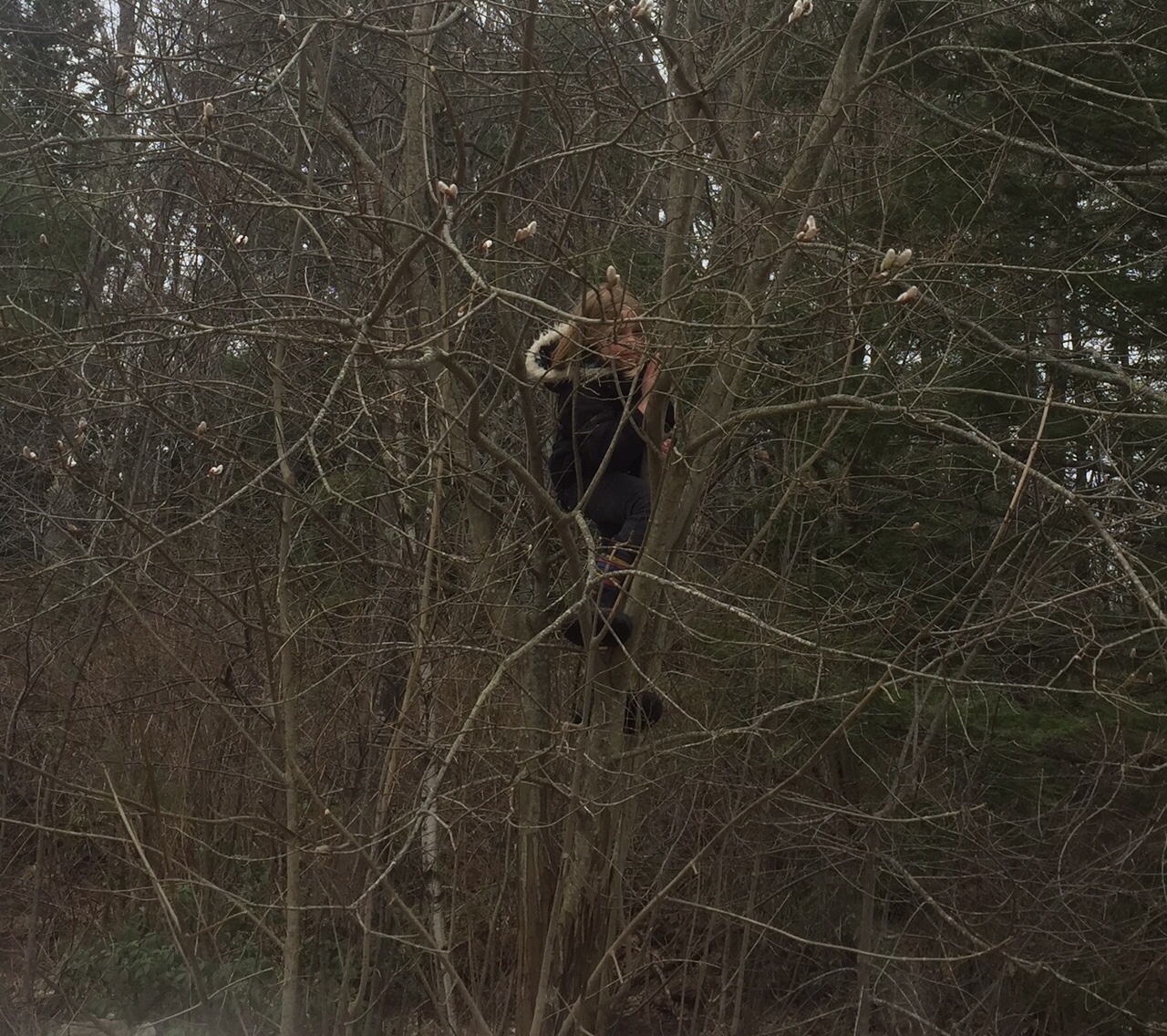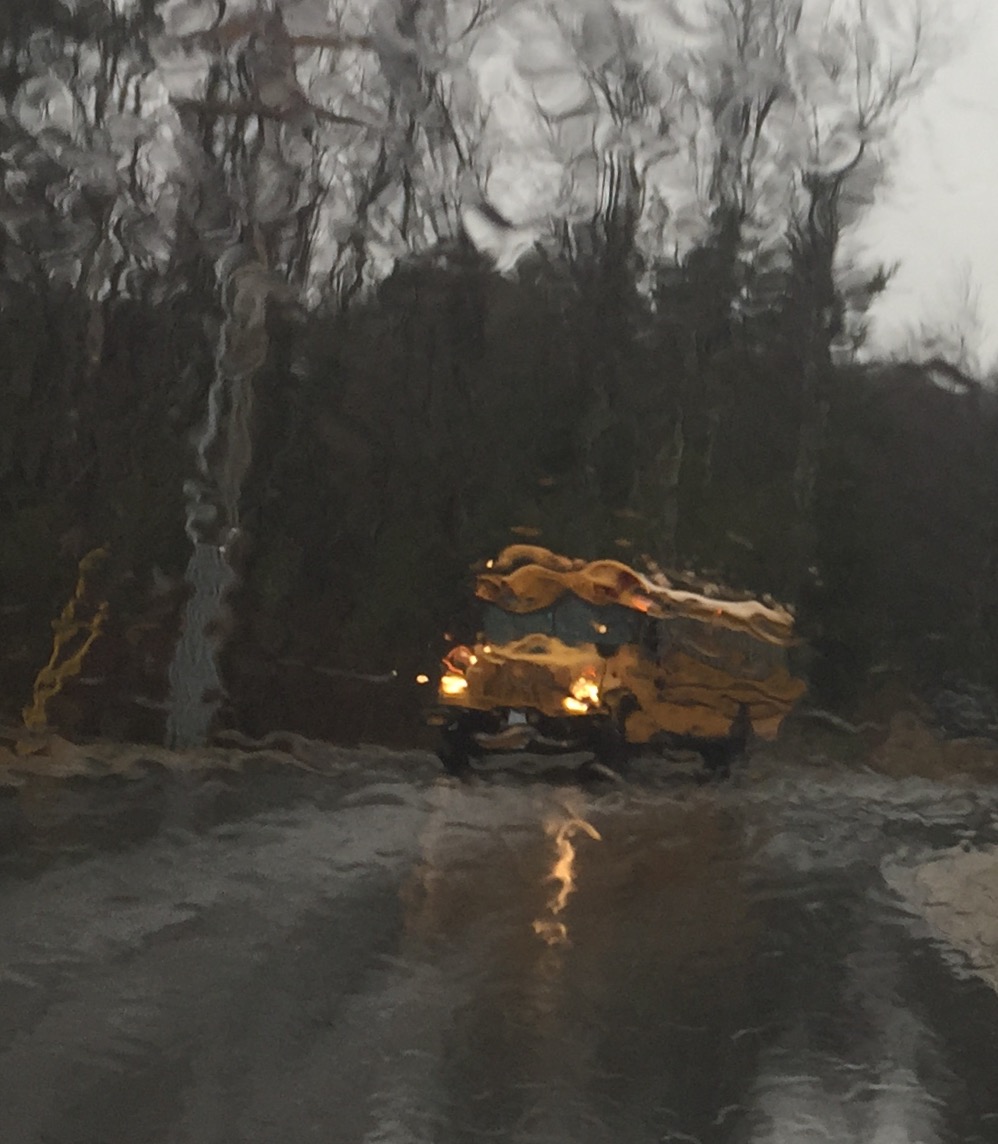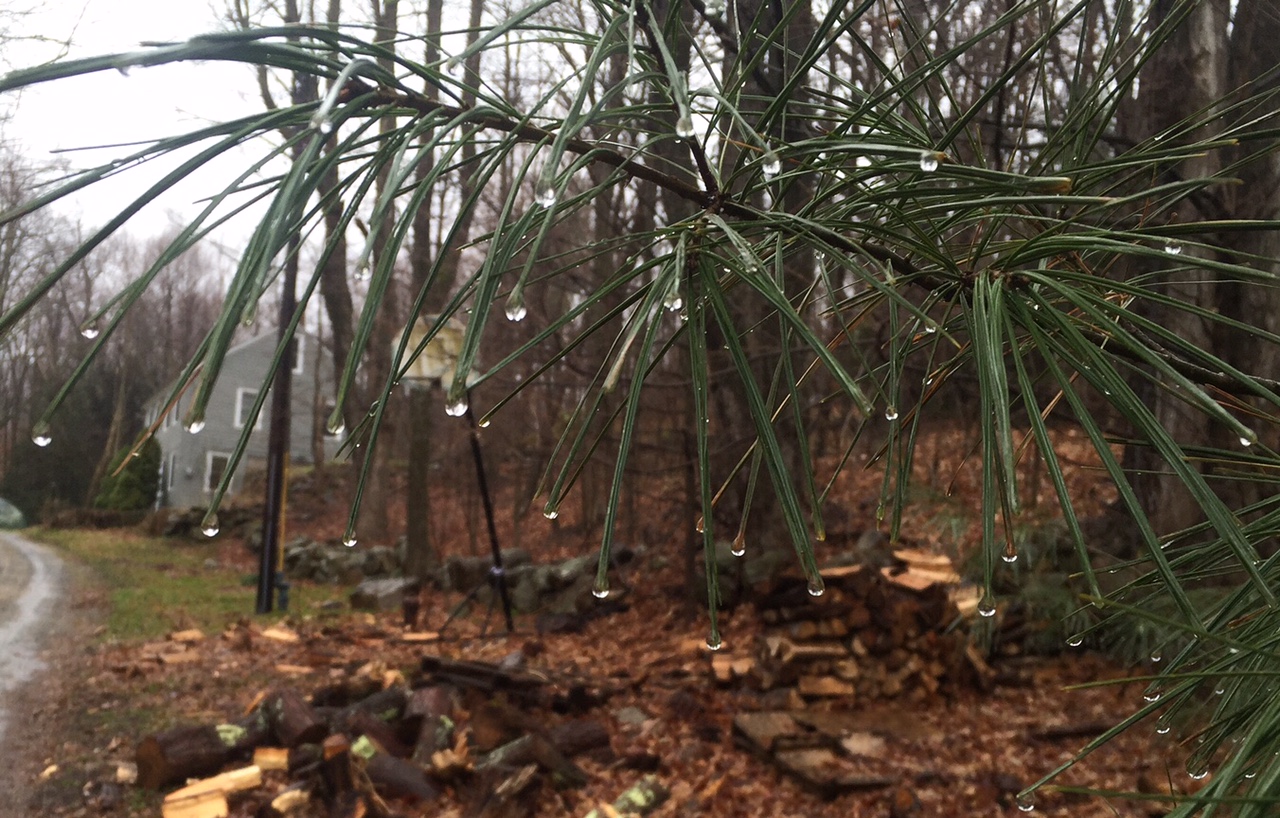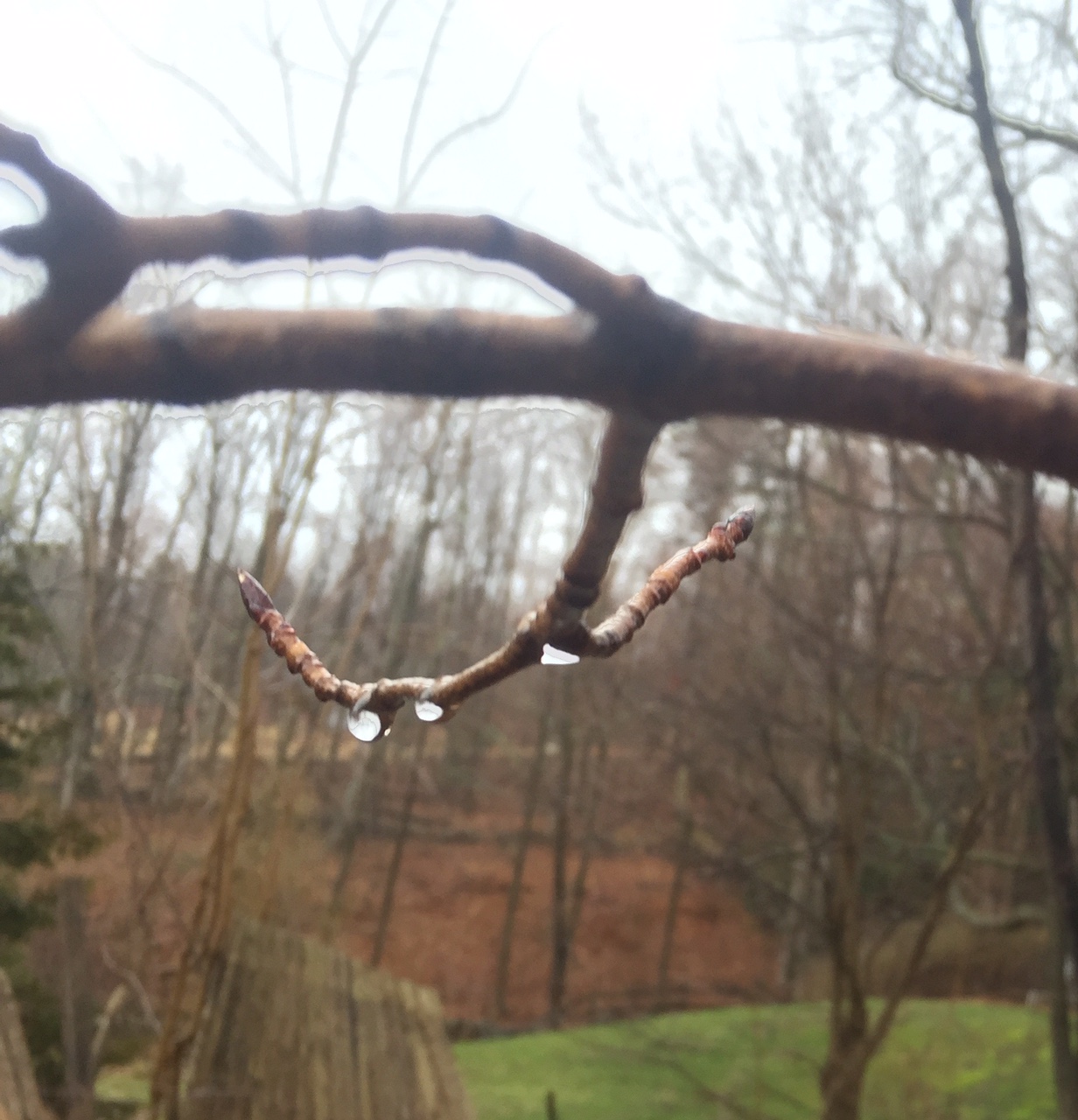I’ve waited a long time to play the part, so I sort of like being a grumpy, yet wise, old farmer. Not that I didn’t try it when younger.
One of my favorite stories involves a time I was a younger gardener in 1990, and advised a spring-feverish older and wiser lady (from Virginia) that it might be unwise, even though early-April temperatures set records and hit ninety, to plant tomatoes in April in New Hampshire. A week later she called me in, to serve me hot tea on a heated porch full of hothouse blooms, from where I worked out drenched in her rose garden in a cold rain mixed with wet snow. The kindly old woman bleakly looked out the window as she handed me my wonderful tea, and said three wonderful words: “You were right.”
But that small victory lacked the quality of grumpiness necessary to play the part of an elder. After all, she was my elder. I had to keep my eyebrows up and smile, and not call her a durned fool, and only “suggest” it was unwise to plant tomatoes. It lacked the full joy of unleashed grumpiness.
Old age may limit me in other respects, but it allows me great freedom in terms of grumpiness. It is sort of fun to scare younger people who are in fact bigger and stronger, or even smaller and stronger, but the smallest see right through my grouchiness to the twinkle in my eyes. When I grump they often laugh. At my Childcare I often grumble something like, “Do I look like some sort of couch? My mother didn’t raise me to be a couch!” This doesn’t phase the kids a bit, as they crowd around to view pictures in a book during story-time, pressing in from all sides and even perching on my shoulders like a pirate’s parrots.
I really think it is wrong to expect children to pass any sort of pre-kindergarten “tests”, or to try to grade them and place them on “levels of development”. They are what they are. Many great men were amazingly “slow” in certain respects. Thomas Edison couldn’t talk until he was four. One American president was still illiterate at age twelve. And Winston Churchill never did learn to be respectful. With children aged three I think it is best to simply expose them to lots, and allow them to absorb what absorbs.
My “curriculum”, if it can be called that, is merely whatever strikes me as noteworthy in our landscape, or whatever work I am doing to operate our toy farm. In early April one “subject” of my “curriculum” is the first flowers, which appear on the hardiest trees. Some are just dull colors from a distance, but intricate beauty, up close.
For example, the short, shrub-like willow called “glaucous willow”, (a real pain if it grows near your drains or leech field due to its webbing, clogging roots, but perhaps useful as a substitute for aspirin), has a moment of glory in the early spring when it forms catkins that look like small, gray, furry tail-tips, or perhaps rabbit’s feet, called “pussy willows”. As a small boy in the 1950’s I recall teachers bringing these fur-tipped twigs into classroom as proof winter wouldn’t last forever, in early March (in Massachusetts). However the true beauty and glory often goes unnoticed, and occurs when the male catkins produce their pollen. The beauty is something to sneeze at:

I like to show such things to small children, simply to see if they are the slightest bit fascinated. Some find dinosaurs far more interesting, even though dinosaurs are extinct and pussy willows are not.
OK. Maybe boys aren’t interested in pussy willows. How about the intricate, tiny blooms of swamp maples?
I guess not, in the case of this small boy.
OK then, how about a small girl?
If we were allowed to be scientific any more, we might hypothesize that the above suggests that small girls are different from small boys. However that would be sexist, so I will not suggest such a hypothesis. I certainly will never suggest small girls are superior. Nor will I suggest they are more English than French, for it is the English gentlemen who fussed about flower-gardens and poetry, as the French fussed about wine, women and gluttony (back in Victorian times.) God forbid!
Back in Victorian times the French and English were allowed to differ, without it being seen as proof they were fascists, and hated the bland conformity of Globalism. The English allowed their children to run around naked on beaches even in the 1940’s, which the French found barbaric, as their children wore suits. The French also considered African woman barbaric, and asked African women not to go topless in sweltering African heat, and instead to wear blouses. The Africans complied, but then noticed the French women promptly started going topless on the French Riviera. It is little wonder to me Africans decided enough was enough, and all the French colonies insisted they be allowed to differ, which involved declaring independence at the same time (1960).
Globalists seem to feel all people in all places should march the same way in lockstep, but to me history seems to show nations and states and neighborhoods and families and even individuals are unique and each have a fingerprint unlike any other. God made people different for reasons all His own, and I prefer to avoid challenging God. I’ll make a lousy Globalist. I certainly don’t attempt to make the children at my Childcare walk in lockstep.
In any case, I’ve lived long enough to know the white things that fall in the spring in April in New Hampshire are unlikely to be cherry blossom petals. If I was ridiculous, and demanded all the small children pay attention, and focus on blossoms, blossoms, and nothing but blossoms, they would not have to rebel and declare their independence from blossoms, for the weather would be anti-blossom for them.

At this point the the Globalists will raise a predictable hue and cry about unpredictable weather an old grouch like me predicted. I still have a boyhood diary, (I think from 1964), describing an April snowstorm south of here, just west of Boston. Yet the Fake News states recent snow is proof Global Warming is upon us, (though snow is not warming). If I suggest otherwise, I get banned from Twitter and Facebook and YouTube. Is it any wonder I am grumpy? These young High-tech whippersnappers are suppose to respect their elders, not censor them. But younger kids are kinder. They remembered I grouched we shouldn’t plant tomatoes and should only plant peas. One five-year-old looked at me after the late snow and wondered, “How’d you know it would snow again?” I grouched, “I didn’t know it. Some years it doesn’t. But most years it does.” But it did seem nice that, even if Globalists don’t respect me, a certain five-year-old does.
But the snow was murder to remove from the entrance of the Childcare. Mid April sunshine is as powerful as late August sunshine, when people sunbathe on beaches, and snow turns into slush which is too heavy for snow blowers to handle. I faced resorting to a primitive thing called “a shovel”, because some young mothers have removed their snow tires from their cars and boots from their feet, and arrive in optimistic ankle-high sneakers.

I only shoveled the lead-like snow from a few strategic places, but that was enough to cripple me. I figured it was an opportunity to die with my boots on, but I was unfortunate and didn’t drop dead, and instead lived on to creak groaning from my bed the next day. I was so grumpy I needed an aspirin, coffee, and the cure called “composing”.
I stir first coffee, hoping it will stir
My sense of humor, as I look outside
At a tangerine sunrise and say, “Brr.”
A half-foot of ermine is draped to hide
The slender shoulders of spring. The snow lies
Like white lies. It will fade like last night’s dreams.
The spring birds know it, and fill the dawn’s skies
With an unsnowy chorus. To me it seems
They sing to a One Spring that is lasting.
All else is passing. Nothing gold can stay.
Dawn sinks down to day. Prayer and fasting
Understands we gain by taking away.
These brief April snows are like all our woes:
Shadows that pass as a Lasting Light grows.
My boyhood diary from 1964 marvels how swiftly the eight inches of snow vanished, with very brief entries: “Sunny, only four inches left;” “Sunny, only two inches left;” and “Warm; snow all gone but a few places.” I hope this legalizes my telling the kids at the Childcare, “It will all be gone in a twinkling”, although I’m sure certain Globalists would disapprove. Officially, in 1964 snow melted swiftly because it was April and the sun was as high as it is in August, but now it melts swiftly due to Carbon Footprints.
Still, as it all melted I found reason to be grumpy. I pity the poor devastated daffodils. They are native to the north shore of the Mediterranean, where they are born to spring up and wave in warm breezes, perpetually perky (until they become perky seedpods).
It is cruel to transplant such southern bulbs to New Hampshire, where they spring up and and are allowed to be perky for a day or two or three or four, before being buried by heavy, wet snow. Year after year the snow melts to reveal devastated Daffodils discouraged and drooping. And this year was no different.
At this point I likely should write a sonnet about how outsiders need to adapt and evolve when they are aliens to the environment they are transplanted into. Englishmen need to adapt to France and Frenchmen to England. Globalists need to adapt to everybody, rather than asking everyone to adapt to them. But I’ve been there and done that. Check out my sonnet on daffodils, from a couple of years back. (I leave it up to you to conduct the search; it would be vain of me to link to my own sonnet.)
Now I am older and wiser, and basically what I have learned is ancient and not new. It is why we should respect our elders, and why it was wrong for my generation to adopt the motto, “Don’t trust anyone over thirty.” (I think Timothy Leary yammered that idiotic motto when he was forty-four.)
As the the snow melted I saw something besides the depressingly drooping daffodils. It was hopeful. Can you see it in these pictures? (Hint: As the snow first fell the turf was burned brown by last fall’s drought, January’s snowless flash-freeze’s wind-burn, and this spring’s drought.)
We waited long for the iron sod to thaw,
And so it seems a cruel joke that cold snow
Buries the softened pasture, yet the crow’s caw
Sounds happy; not the croak of weighted woe
You’d expect. A drenched dove softly coos
Love’s questions. A wet robin rejoices.
Not a single bird is singing the blues.
From whence comes the joy in all these voices?
Even the gruff old farmer smiles, with eyes
Full of mischief. He growls, “Why the long face?
Don’t you know this snow wears blessing’s disguise?
Beneath white, brown grass greens. It is a case
Where snow gets called, “Poor Man’s Fertilizer.”
Spring’s here, even if fools can’t recognize her.





















